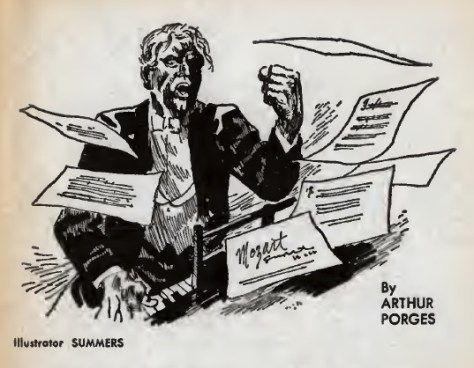
by Victoria Silverwolf
As I prepared this article, I listened to President Kennedy's speech on Cuba, which was broadcast on radio and television throughout the nation.

Although many of you no doubt heard this address to the American people, I feel compelled to transcribe its shocking opening words:
This Government, as promised, has maintained the closest surveillance of the Soviet military buildup on the island of Cuba. Within the past week, unmistakable evidence has established the fact that a series of offensive missile sites is now in preparation on that imprisoned island. The purpose of these bases can be none other than to provide a nuclear strike capability against the Western Hemisphere.
As the speech continued, it became clear to me that the world is closer to the brink of nuclear war than ever before. I was already in a state of anxiety, ever since China escalated a border conflict with India into open warfare two days ago by invading on two fronts.

As if international conflicts were not enough, the riot that exploded when James Meredith (shown here escorted by Chief U.S. Marshall James McShane and Assistant Attorney General for Civil Rights John Doar) enrolled in the University of Mississippi filled me with shame and fear for my country. After two deaths, hundreds of injuries, and the necessity for Meredith to be guarded twenty-four hours a day by Federal troops, I have to wonder sometimes if the United States is heading for a second Civil War.

It seems likely that the threat of violence, which hangs over our heads in these troubled times, makes it necessary for us to make light of traditional terrors. We laugh to keep from screaming. As an example, on the same day that China invaded India, Bobby Picket's novelty song, The Monster Mash, reached the top of the charts.
Appropriately, the latest issue of Fantastic features another comic version of old-fashioned horrors.

It's Magic, You Dope! (Part 1 of 2), by Jack Sharkey
Lloyd Birmingham's cover art, which reminds me of the macabre cartoons of Charles Addams, captures the spooky but laughable nature of this short novel by editor Cele Goldsmith's resident comedian.
The narrator pays a visit to his girlfriend at the home of her parents. He leaves after a lovers' quarrel, but quickly turns back. To his amazement, the house is gone. Phone calls reveal that nobody remembers the home or its inhabitants. It soon turns out that a sinister pair used a weird device to transport the family to another dimension, one full of monsters and magic. Things become much more complicated when a wood nymph and a faun (who seem to be weird, alternate versions of the girlfriend and her little brother) show up. The two evil men wind up in the other world, as does the narrator and his two new companions. What follows is a wild struggle for survival in a place full of bizarre and deadly creatures, some from folklore and others that only exist in the mind of the author. Although the plot seems to be little more than one strange, random event after another, it holds the reader's interest. Three stars.
Awareness Plan, by David R. Bunch

The magazine's most controversial writer – a fact noted in the introduction to this story – returns with another eccentric, mysterious tale. Two men discuss how to deal with a conquered people who do not show the proper respect for their masters. What elevates this vignette above its minimal plot is the author's unique style, use of strange words, and satiric edge. It's definitely not for all tastes. Two stars.
Planetoid 127, by Edgar Wallace

This issue's Fantasy Classic comes from the pen of an extremely prolific author whose works have been adapted into many movies in the United Kingdom and Germany. He is best known in the United States for his work on the screenplay for King Kong. This story, reprinted from 1924, deals with an astronomer who has an uncanny ability to foresee future events. This allows him to acquire a vast fortune through investments, which attracts the attention of an unscrupulous businessman who will stop at nothing to acquire his secret. This is a typical pulp crime story with a single science fiction element, not revealed until the end. Unfortunately, the introduction by SF historian Sam Moskowitz spoils the story by describing the gimmick in detail. Two stars.
(There's one strange thing about the interior illustration that appears with this story. It obviously depicts a scene that appears in the story Black and White by Marion Zimmer Bradley, published in this month's Amazing. Looking back at that issue, it's clear that the illustration that accompanied Bradley's story shows a scene from Wallace's tale. Somebody at the art department of Ziff-Davis is likely to get in trouble for mixing up the two.)
The Mozart Annuity, by Arthur Porges

Finishing the issue is the story of a conductor who worships the music of Mozart. His biggest regret is that the composer died at an early age, before he could create even greater masterpieces. His brother happens to be an inventor who has come up with a time machine of sorts. It can only transport small, nonliving objects back in time. The brothers come up with a plan to send silver back to the time of Mozart's childhood, with a letter to a bank explaining that it is to be used to provide a steady income for the young musician, allowing him to avoid the poverty that led to his death. The consequences are unexpected. This is a clever story, if superficial. Three stars.

Overall, a mediocre issue with no outstanding stories. However, I recommend it as a way of keeping your mind off the much more frightening things in the real world.
